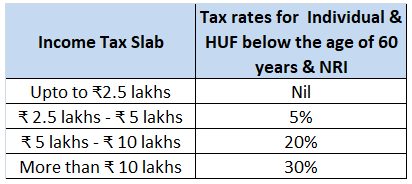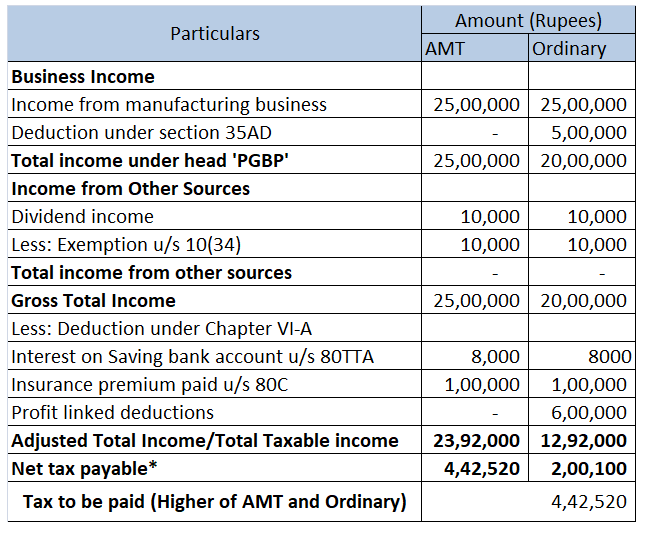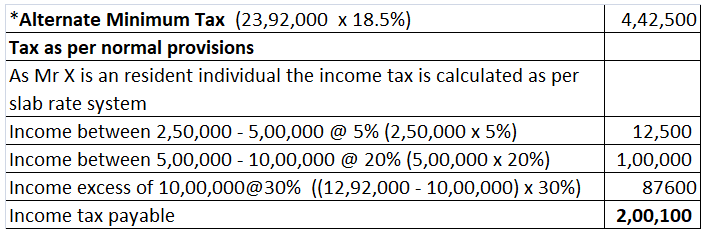Introduction Income tax means the tax charged on the income of a person which the person has earned during a financial year. As per the Income-tax act, 1961, the income tax on income earned during a financial year is assessed in the following financial year and tax is to be paid on the assessed incoRead more
Introduction
Income tax means the tax charged on the income of a person which the person has earned during a financial year. As per the Income-tax act, 1961, the income tax on income earned during a financial year is assessed in the following financial year and tax is to be paid on the assessed income if payable.
The year in which the income is earned is called the Previous Year and the following year in which the previous year’s income is assessed is known as the Assessment Year
Steps involved in the computation of Income-tax of a person:
- Determination of residential status of the person
- Classification and computation of income under the five heads of income
- Clubbing of income of spouse, minor child etc
- Set-off or carry forward of losses
- Computation of Gross Total Income
- Deductions from Gross Total Income to arrive at Total Income
- Application of the rates of taxes on total income
- Advance tax and tax deducted at source
- Arrival at Tax payable/ Tax refundable
- Determination of residential status of the person
Determination of residential status of the person
The residential status of a person is of great significance for ascertaining the taxability of a person’s income as per the Income-tax act, 1961. As per the act, a person can fall into one of the following criteria:-
- Resident and Ordinarily Resident in India
- Resident but Not Ordinarily Resident in India
- Non-Resident
Classification and computation of income under the five heads of income
Now, a person’s income can be from various sources. As per section 14 of the Income-tax act, there are five main heads of income for computation of income tax:
- Income from Salary
- Income from House Property
- Profits and Gains from Business or Profession
- Capital Gains
- Income from other sources
Income under each head is to be computed as per provisions of the Income-tax Act, 1961.
Clubbing of income of spouse, minor child etc
Some individual taxpayers divert some portion of their income to their spouses and minor child in order to reduce their tax liability as the slab rate of income tax for individuals is progressive.
Such diverted income is to be clubbed with the income of the assessee as per the provisions of the Income-tax act.
Set-off and carry forward of losses
Losses suffered under the heads of the income like ‘Profit and Gains from Business and Profession’, ‘Income from House property’ can be set off against the income earned under other heads as per provision of the act.
If set off is not possible in the current assessment year then the loss can be carried forward to the next assessment year.
Computation of Gross Total Income
Gross Total Income is arrived at by computing the total of income under all five heads of income after giving necessary deductions as applicable under each head of income.
Deductions from Gross Total Income to arrive at Total Income
Income tax act, 1961 allows specific deduction from the Gross Total Income under sections 80C to 80U. These deductions are provided to encourage certain kinds of investments like life insurance premiums etc and provide relief on certain spending like medical expenses, interest expenses on home loans etc which leads to the overall welfare of the people.
After allowing the deductions from Gross Total Income, we arrive at Total Income.
Application of the rates of taxes on total income
Tax is calculated at a rate on the total income. The rate and calculation of income tax depend on the type of assessees.
Individuals and HUFs
For individuals who are below the age of 60 years and HUFs:

For individuals over 60 years and 80 years of age, the basic exemption limit is ₹3,00,000 and ₹5,00,000 respectively.
Also, as per section 115BAC, individuals and HUFs have the option to choose an alternative slab rate of tax as per which the income tax is charged at concessional rates. But, the various exemptions and deductions like housing rent allowance, leave travel concession, standard deduction on salary income cannot be availed. This slab rate system was introduced recently to reduce the complexity of filling IT returns by small taxpayers.
Rates of tax related to other types of assessees is not provided for sake of simplicity.
Advance tax and tax deducted at source
After calculating the tax on total income as per specified rates, the income tax amount is to be reduced by the advance tax and tax deducted at the source.
Tax payable/ Tax refundable
After performing all the steps above, we arrive at Income tax payable or tax refundable.
See less



To determine if a person is a resident in India as per the Income Tax Act 1961, he has to fulfil any of the 2 following conditions; Condition A Stay in India for 182 days or more in the previous year, or Stay in India for 60 days or more in the previous year and another 365 days or more in the 4 yeaRead more
To determine if a person is a resident in India as per the Income Tax Act 1961, he has to fulfil any of the 2 following conditions;
Condition A
The second condition above is not applicable if he is an Indian citizen leaving India for the purpose of employment, or he is a member of the crew of an Indian ship, or he is only coming to India on a visit.
If he fails to fulfil either of the two conditions, then he is termed as a non-resident.
In India, a resident person can be classified into two:
Condition B
A resident is a resident and ordinarily resident if (B):
If a person satisfies any one condition of (A) but does not follow all conditions of (B), then he is termed as a resident but not ordinarily resident.
EXAMPLE
If Nithin is living in India for 190 days in the previous year and was a resident for the previous two years only staying for 400 days in the previous 7 years, then he fulfils condition (A) but not both conditions of (B) and hence he is a resident but not ordinarily resident.

See less